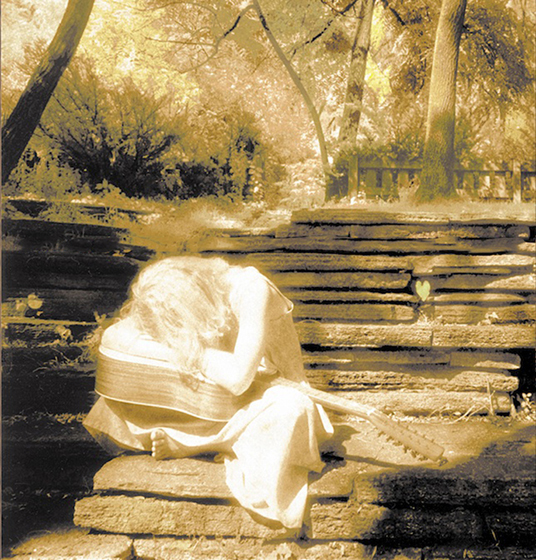... the nerdy stuff
Sohre was the only female in an intensive study of sound engineering at the Music Source in Seattle, WA from 1992-94, pushing her determination to succeed in a profession still mainly dominated by men.

From 1986-87 Chris lived in London, UK, studying the methods of Zoltán Kodály while becoming involved with two alternative folk/rock bands as lead vocalist. At this time she began travelling regularly, both solo and as collaborator in various bands.
Her very first recording was self-produced and released on cassette in 1984, titled Fleeting Echoes. This name was subsequently used as her publishing label (Fleeting Echoes Ltd) and also continues to serve as her production studio.
Sohre received her Bachelor of Music performance degree from Silver Lake College in Manitowoc, Wisconsin with study in the methodology of solfège; under the guidance of Dr Lorna Zemke, an internationally-known Kodály instructor. Chris attended this college for only one year but it was packed with valuable learning experiences - including a visit to interview Katinka Scipiades Daniel, one of the most influential Hungarian-Americans who directed the entire adaptation of the Kodály Method and its progress in the U.S.
Upon completion of her studies, Chris spent her internship teaching contemporary guitar classes and composing original material for ensemble work at Lane Community College in Eugene, Oregon.
The majority of Sohre's academic experience came via the University of Wisconsin-Green Bay, opening the door of international adventure. She organized her own program (Philosophy of European Contemporary Jazz) weaving music, photography and philosophy as the foundation for her dissertation. This pioneering independent travel project for the university took her around the European continent in 1979-80, recording live gigs and interviewing musicians such as Jan Garbarek, Miroslav Vitouš, Betty Carter, Eberhard Weber, Kenny Kirkland and Jon Christensen.
When only 10 years old, Chris formed an all-girl band and played the vinyl grooves out of her and her brother’s 45’s, often preferring the B-side of the hits released by British bands and American folk artists. About two years later, her father (who played folk/blues on a chromatic harmonica) and grandfather (Chris’ mentor) died suddenly, and only a few months apart. This spurred Chris to start writing songs, simple as they were. She then became active in school chorus and band, where she was placed in the first chair position with the Bb clarinet from age 14 on.
To back up even further, it all began around age 8 when Chris began playing music on an electric guitar, complete with whammy bar. Unfortunately, her strong natural impulse to play left-handed did not garner parental support for a special guitar, nor was her left-handedness (a traditional sign of satanic influence) acceptable to the nuns at her local Catholic school, who, in the process of teaching penmanship found reason to swat the offending hand with wooden rulers. Her continued refusal to oblige this right-handed prejudice and to accept the many rigid laws dictating this religion, resulted in frequent banishment to the institution’s metaphorical “hell” – the dimly lit boiler room of St George primary school in the north mid-west of America.
This, no doubt, was the beginning of the lifelong question on death, god and the meaning of life…